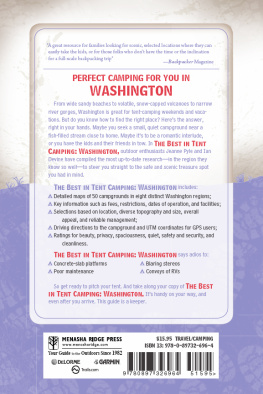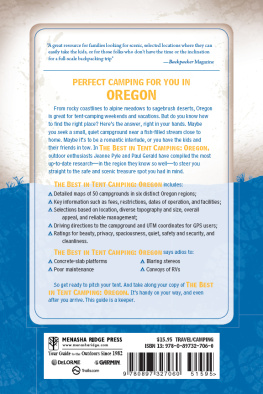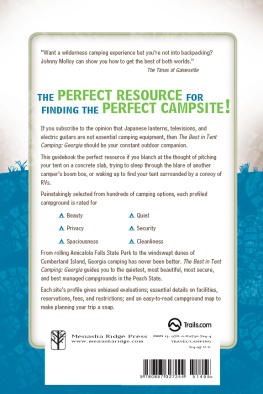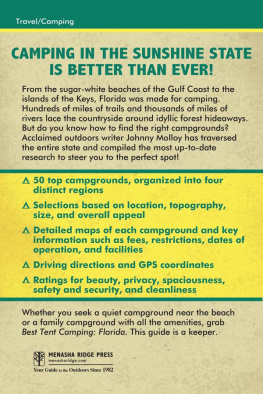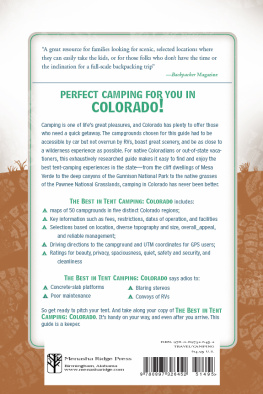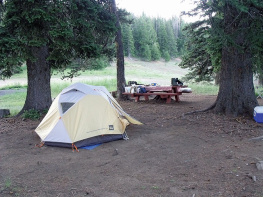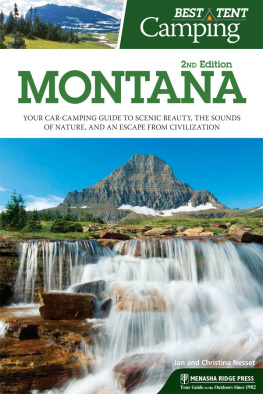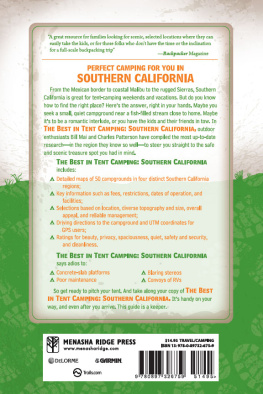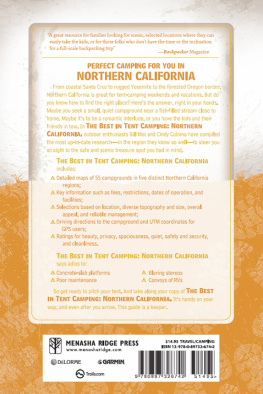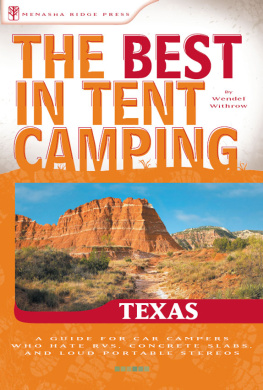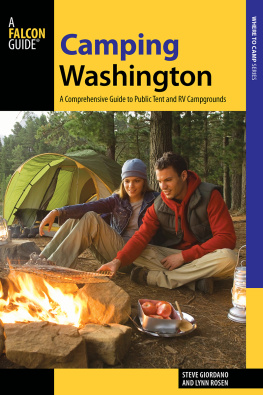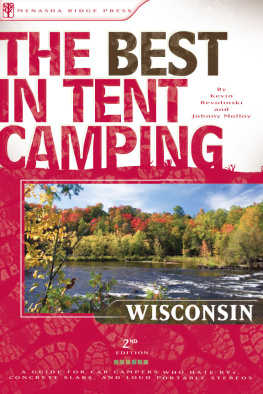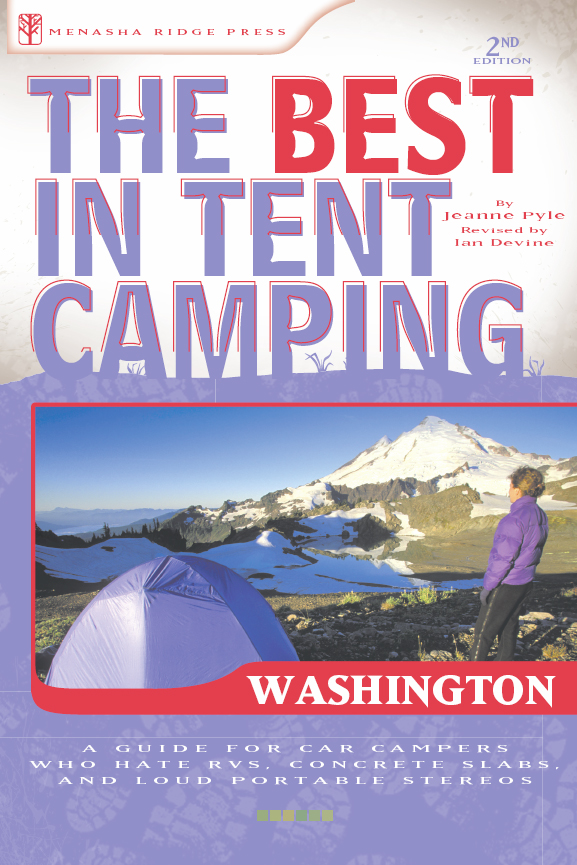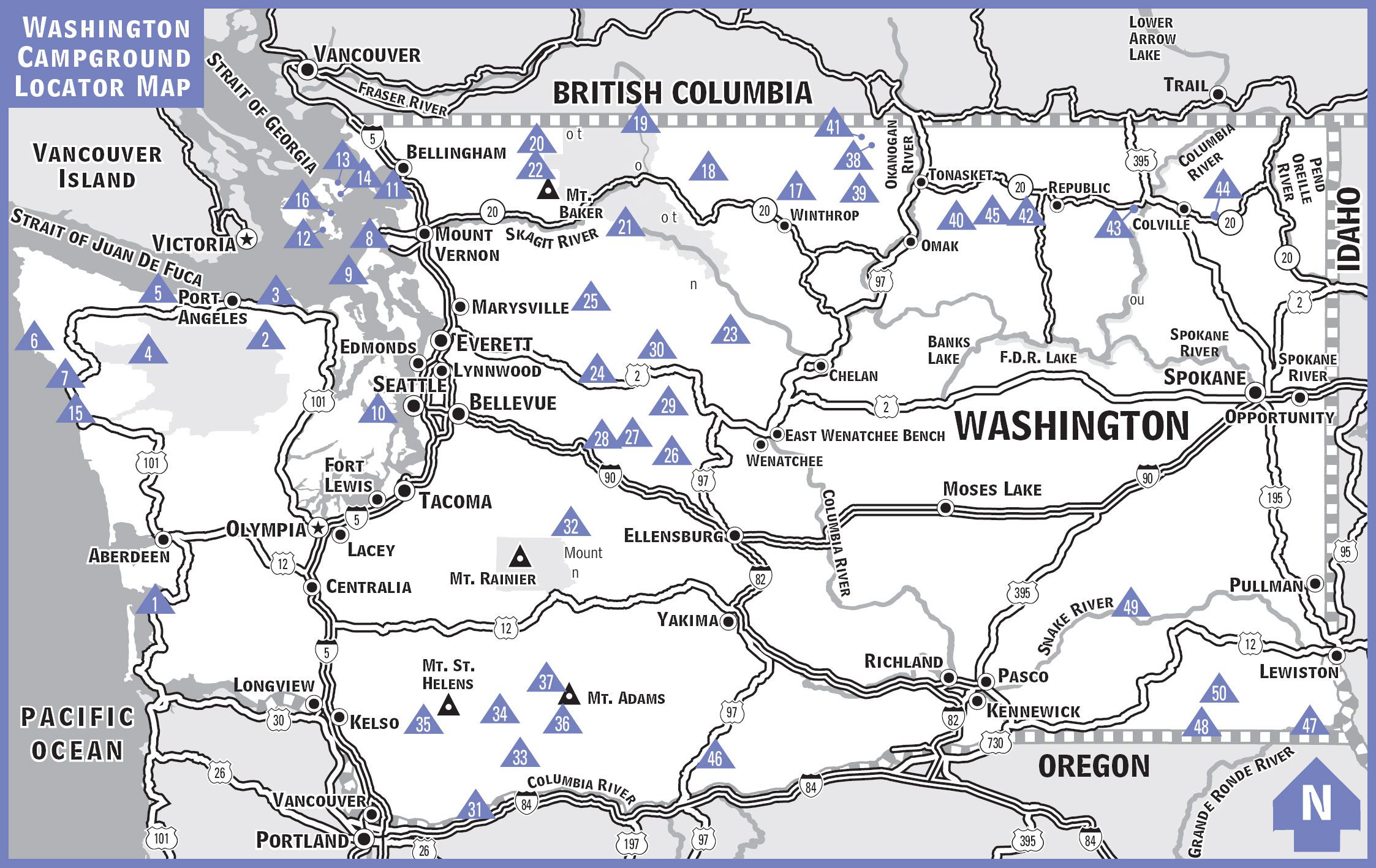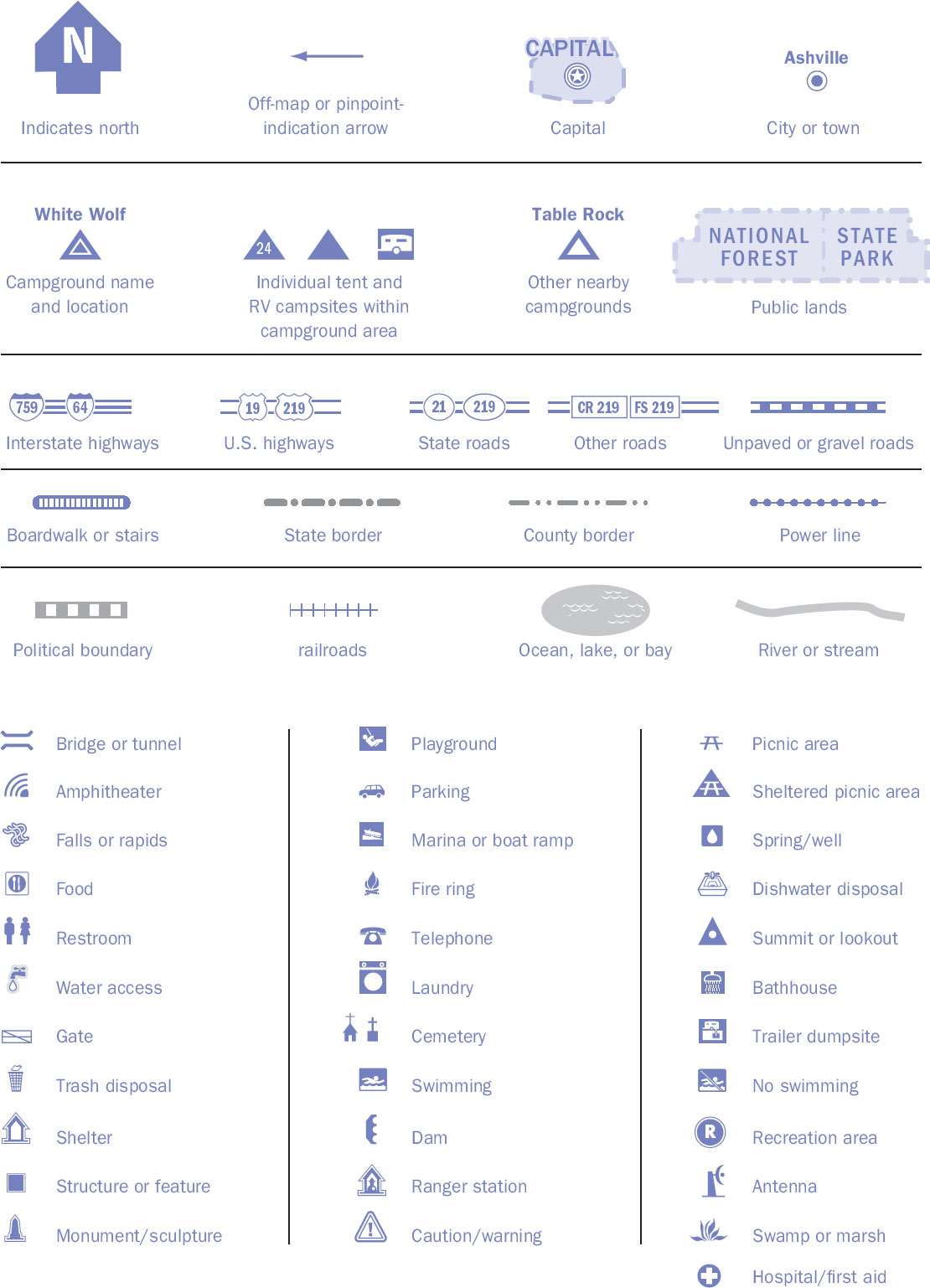Other titles in this series
The Best in Tent Camping: Arizona
The Best in Tent Camping: The Carolinas
The Best in Tent Camping: Colorado
The Best in Tent Camping: Florida
The Best in Tent Camping: Georgia
The Best in Tent Camping: Illinois
The Best in Tent Camping: Kentucky
The Best in Tent Camping: Maryland
The Best in Tent Camping: Minnesota
The Best in Tent Camping: Missouri and the Ozarks
The Best in Tent Camping: Montana
The Best in Tent Camping: New England
The Best in Tent Camping: New Jersey
The Best in Tent Camping: New Mexico
The Best in Tent Camping: New York
The Best in Tent Camping: Northern California
The Best in Tent Camping: Oregon
The Best in Tent Camping: Pennsylvania
The Best in Tent Camping: The Southern Appalachian and Smoky Mountains
The Best in Tent Camping: Southern California
The Best in Tent Camping: Tennessee
The Best in Tent Camping: Utah
The Best in Tent Camping: Virginia
The Best in Tent Camping: West Virginia
The Best in Tent Camping: Wisconsin
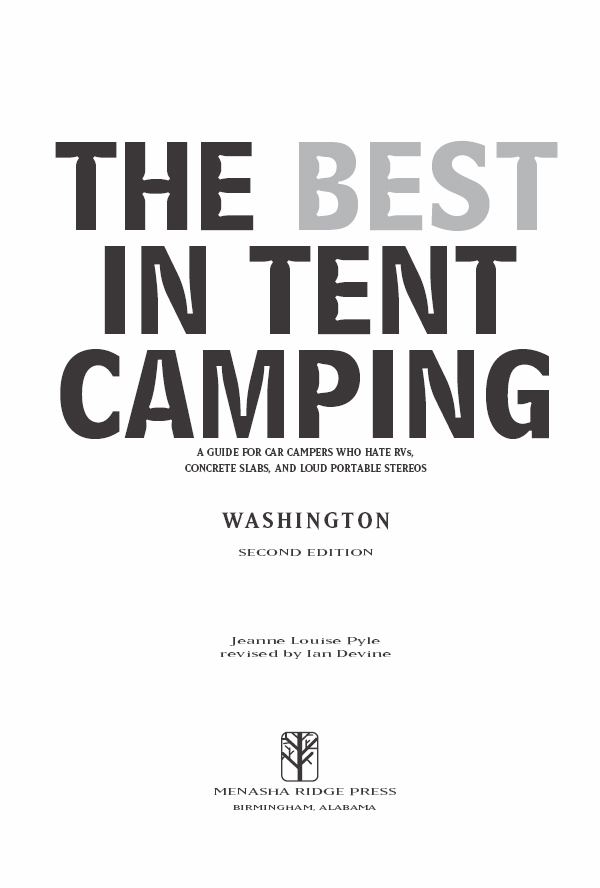
Copyright 2009 by Jeanne Louise Pyle
All rights reserved
Printed in the United States of America
Published by Menasha Ridge Press
Distributed by Publishers Group West
Second edition, first printing
Library of Congress Cataloging-in-Publication Data
Pyle, Jeanne L., 1954
The best in tent camping, Washington: a guide for car campers who hate RVs, concret slabs, and loud portable stereos/Jeanne Louise Pyle; revised by Ian Devine.2nd ed.
p. cm.
Includes bibliographical references.
ISBN-13: 978-0-89732-696-4 (alk. paper)
ISBN-10: 0-89732-696-2 (alk. paper)
1. CampingWashington (State)Guidebooks. 2. Camp sites, facilities, etc.Washington (State)Guidebooks. 3. Washington (State)Guidebooks. I. Devine, Ian. II. Title.
GV191.42.W2P94 2009
917.97068dc22
2009019616
About This Revision
Ian Devine researched and wrote the following new profiles for this edition: Mountain Lake Campground, Obstruction Pass State Park Campground, South Beach County Park Campground, Lake Ann, and Rachel Lake.
Cover and text design by Ian Szymkowiak, Palace Press International, Inc.
Cover photo by Brad Mitchell/Alamy
Maps by Jennie Zehmer and Steve Jones
Menasha Ridge Press
P.O. Box 43673
Birmingham, Alabama 35243
www.menasharidge.com
ACKNOWLEDGMENTS
I am grateful to all who provided me with varying amounts of information, insight, suggestions, warnings, guidance, and encouragement to bring this book and its companion, The Bests in Tent Camping: Oregon, to fruition.
Without the assistance of the National Forest Service, National Park Service, Washington State Parks, Department of Natural Resources, and various other agency staff, I would have floundered endlessly where they nimbly and knowledgeably answered my needs.
To Joan Fish, a veteran outdoorswoman and native Washingtonian with an ever-ready enthusiasm for yet another Jeanne-and-Joan adventureand a blessedly flexible schedule.
To Bill Fry, who, I think, actually enjoyed getting outside of his box on a few occasions.
To my stalwart Volvo station wagon, serving without a single complaint and under the utmost duress. Truly a wonder of a car!
Jeanne Pyle
PREFACE
W hen The Best in Tent Camping: Oregon was originally published, I was asked by an interviewer on a Portland radio station why it is that, in this modern, sophisticated, technologically advanced world, so many of us are still drawn to the pleasures of getting out into the woods and sitting around a campfire.
I answered, I hope because of its simplicity. That was probably too simple of an answer, but we only had three minutes of airtime, it was an unrehearsed interview, and how deep can you go on the spot? It got me pondering, however. Maybe in our subconscious, its our way of doing penance for what we havent left so simple elsewhere. Maybe were paying guilty homage to those vestiges of a land that was once unspoiled. Maybe its the innate pioneer call of the last frontier. Maybe we gobecause its there.
Whatever your reason for seeking the great outdoors, do me a favor. Keep it simple. Keep it clean. And, most important to me, keep it quiet. Enjoying the natural state of things includes the natural sounds. Listen to them, appreciate them, respect them, and teach your kids to do the same. Enough said. OK, one more thing: slow down!! Those 15- and 25-mph signs are actually there for a good reason, even if you dont mind beating your brand-new SUV to pieces. There. No more sermonizing
For now, I hope you take every opportunity to enjoy this newly updated and expanded edition of The Best in Tent Camping: Washington . So far, the natural disasters have failed to make mincemeat of my very best attempts to bring you the most current news from the camping scene, and I refuse to be held personally responsible for what effect Mount St. Helens might have on the state of things. If shes busted her gut again by the time youve bought your copy, all bets are off. Look at the bright side: youll have an instant collectors item on your hands! And I have built-in job security. Enjoy these camping spots while you can.
Happy camping,
Jeanne Louise Pyle
INTRODUCTION
A Word about This Book and Washington Tent Camping
F rom wide sandy beaches to volatile, snow-capped volcanoes to narrow river gorges, Washington rivals its neighbor Oregon (see The Best in Tent Camping: Oregon ) as a place of different but equally unparalleled natural beauty and diversity. As with Oregon, extremes of climate, terrain, and vegetation can often be experienced in just a single days outing. The campgrounds included in this book are representative of the variety that makes Washington a beloved destination for those who seek outstanding outdoor adventureseither for a quick weekend getaway or an extended tour.
And for those who seek that adventure farther afield than most and who value an experience that is long on solitude, serenity, and space, be aware that you may have to drive farther and climb higher and plan more creatively. Although Washington ranks second nationally behind Alaska in designated wilderness acreage, it still constitutes only a little more than 10 percent of the states total land. With more and more people flocking to the scenic natural splendors beyond city limits, this pushes the capacity for a true wilderness experience to new boundaries.
Encountering RVs in the most unlikely of places, one has to wonder if it isnt more comforting to think of wilderness as a state of mind rather than an actual place. I have observed that for some tent campers, it is satisfaction enough just to pitch a tent alongside several hundred others in midsummer at the busy nearby state park. For others, simply being able to drive to the campground immediately eliminates it from consideration. If your sentiment lies somewhere between these two extremes, you should find the offerings in this book appealing.

